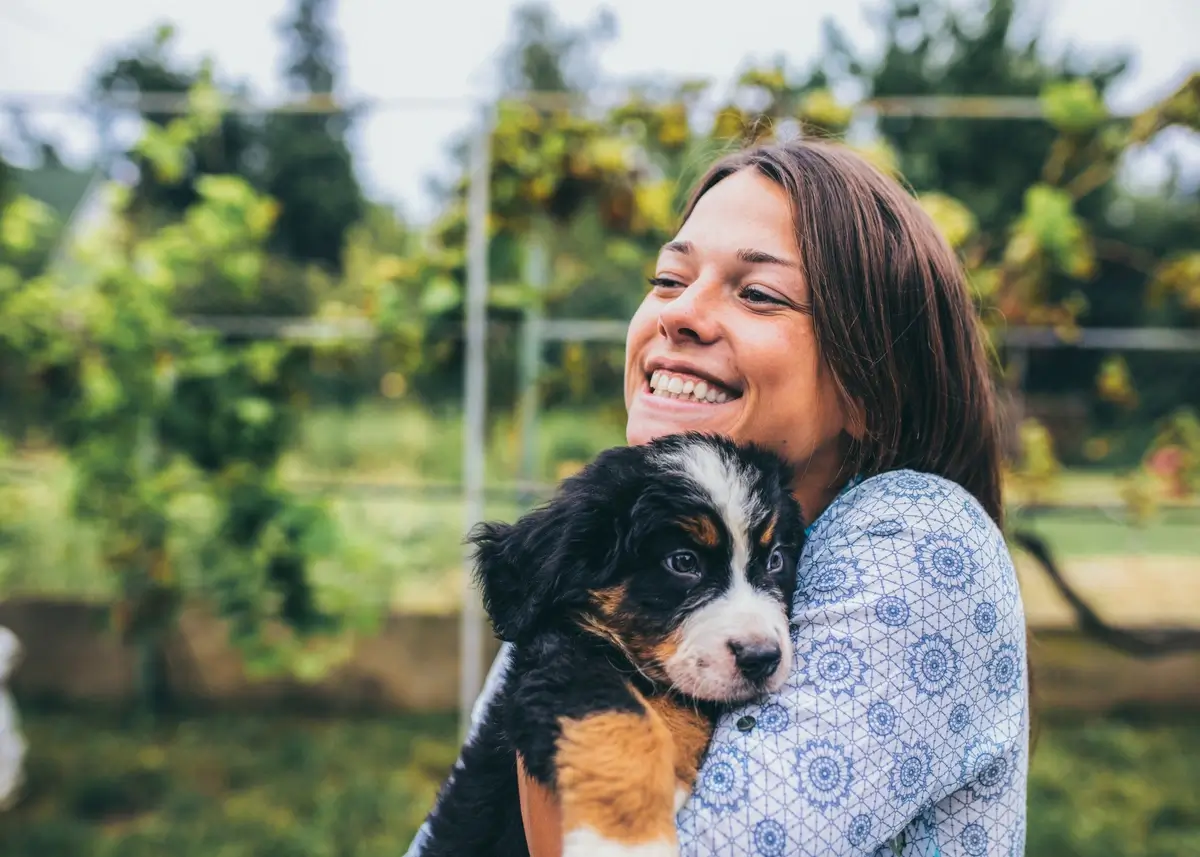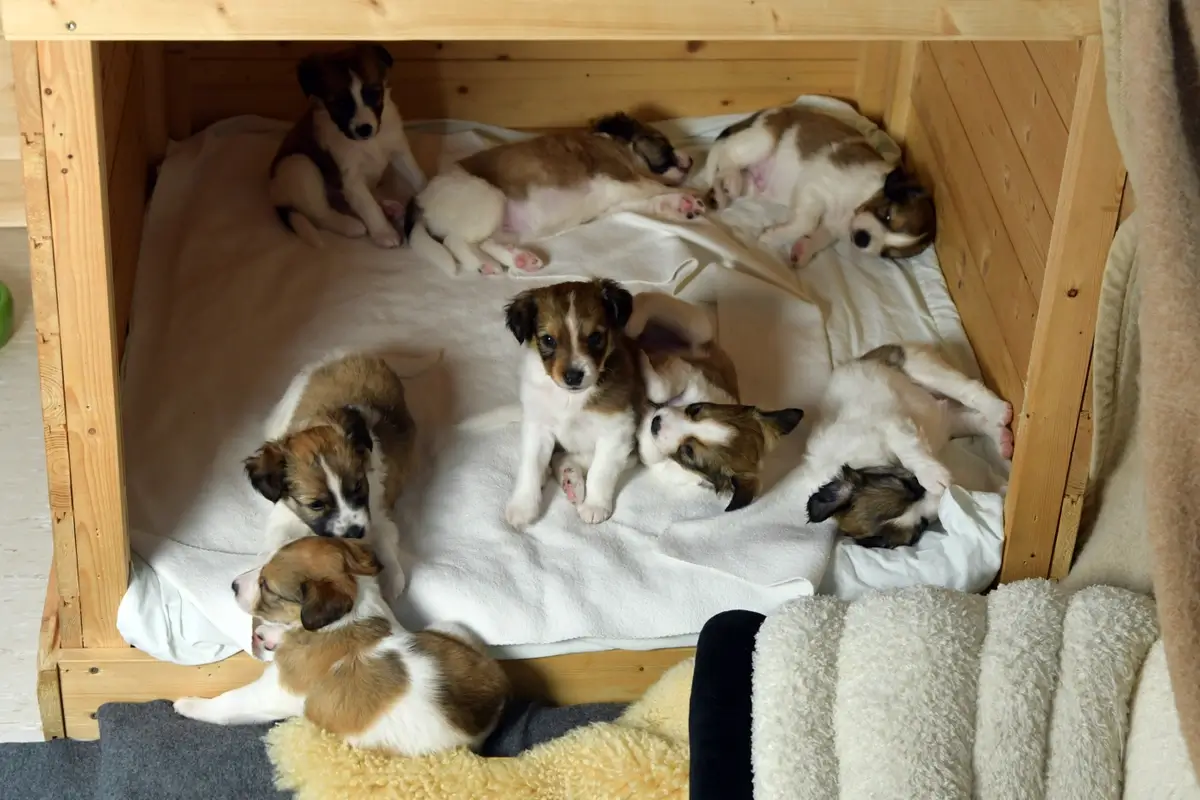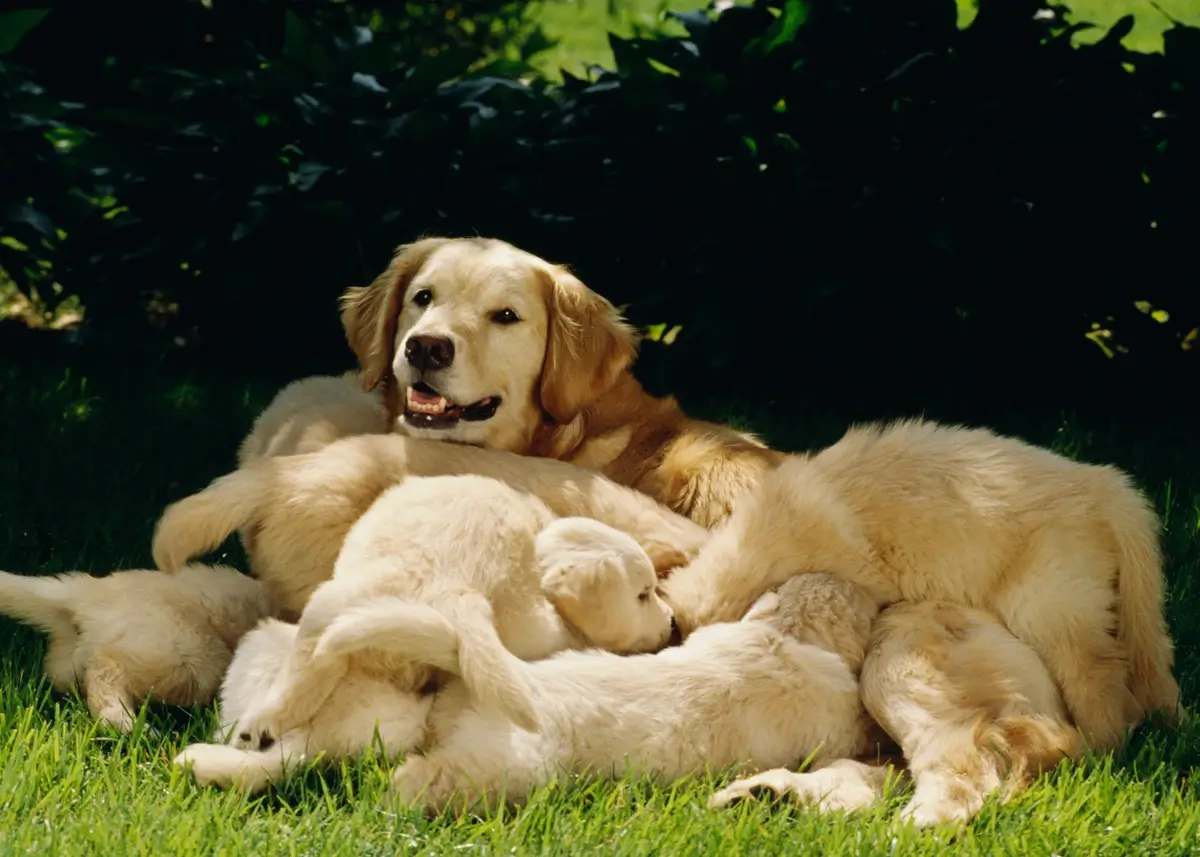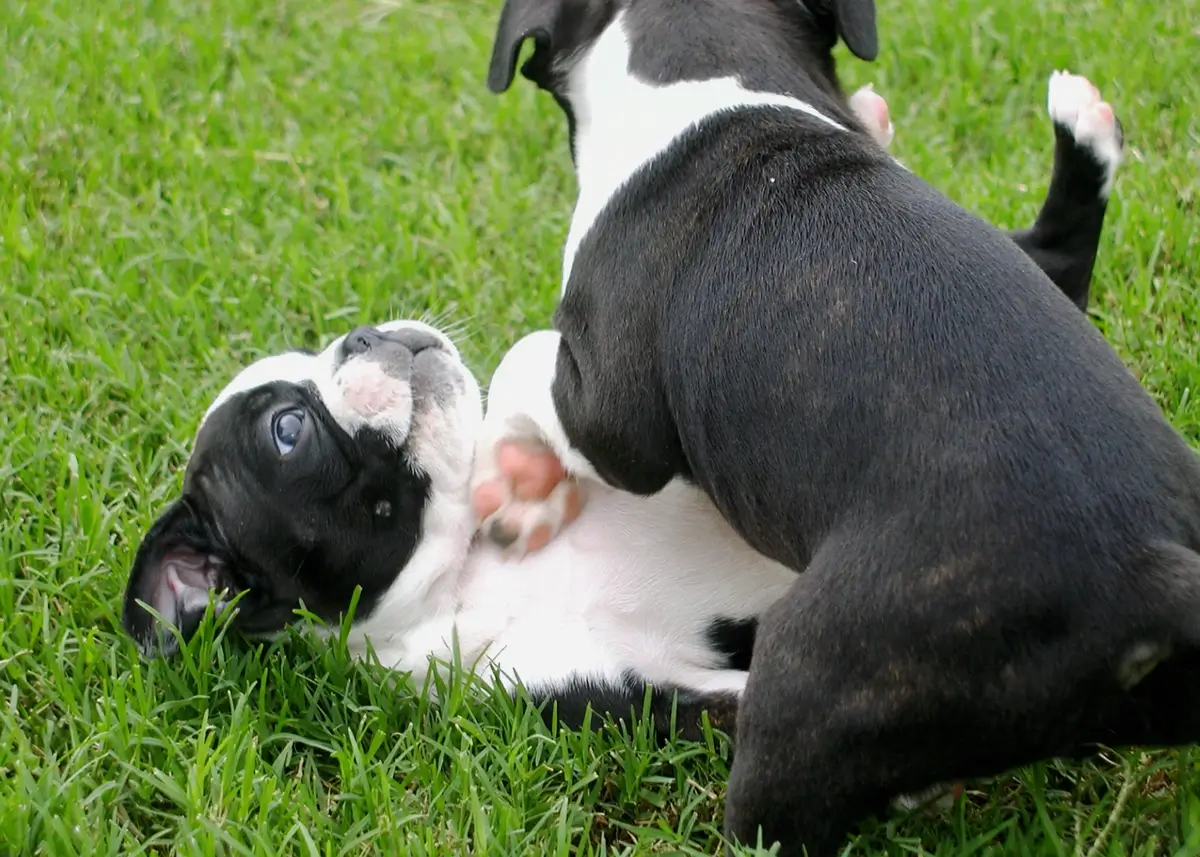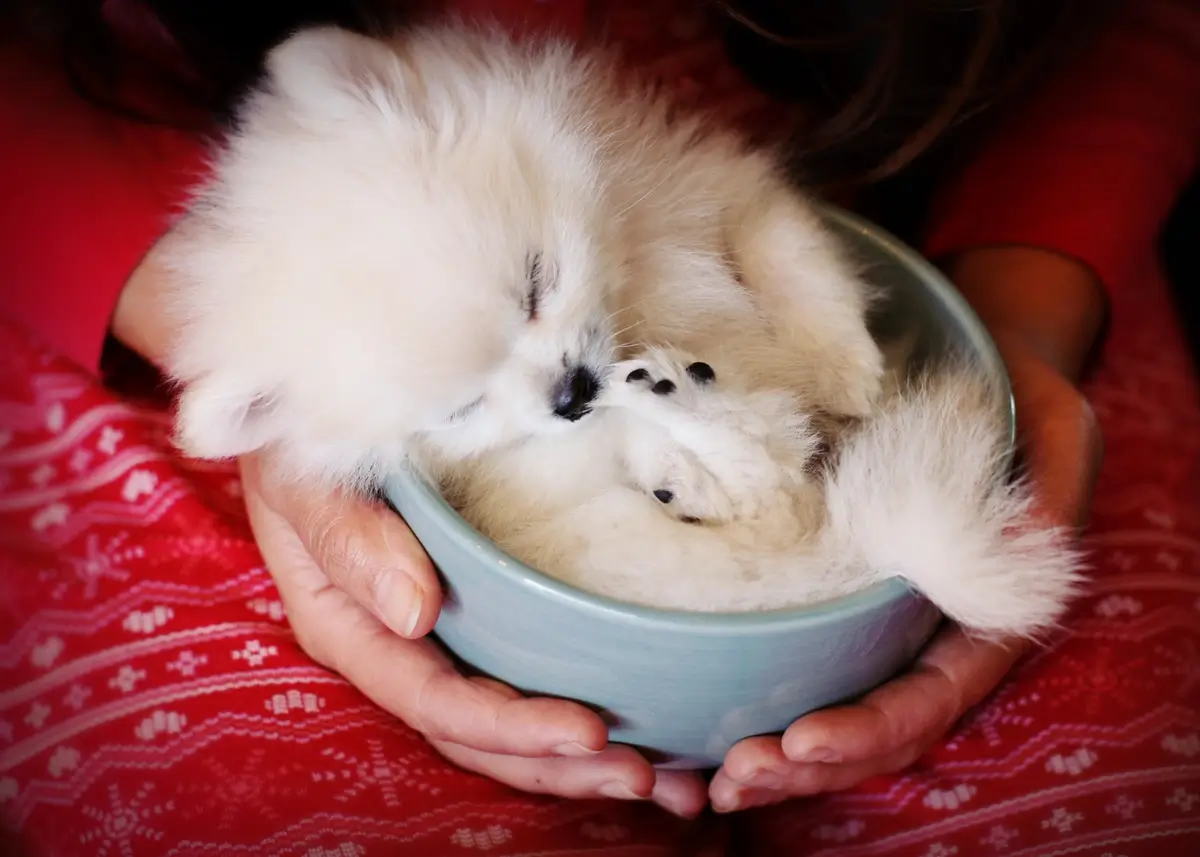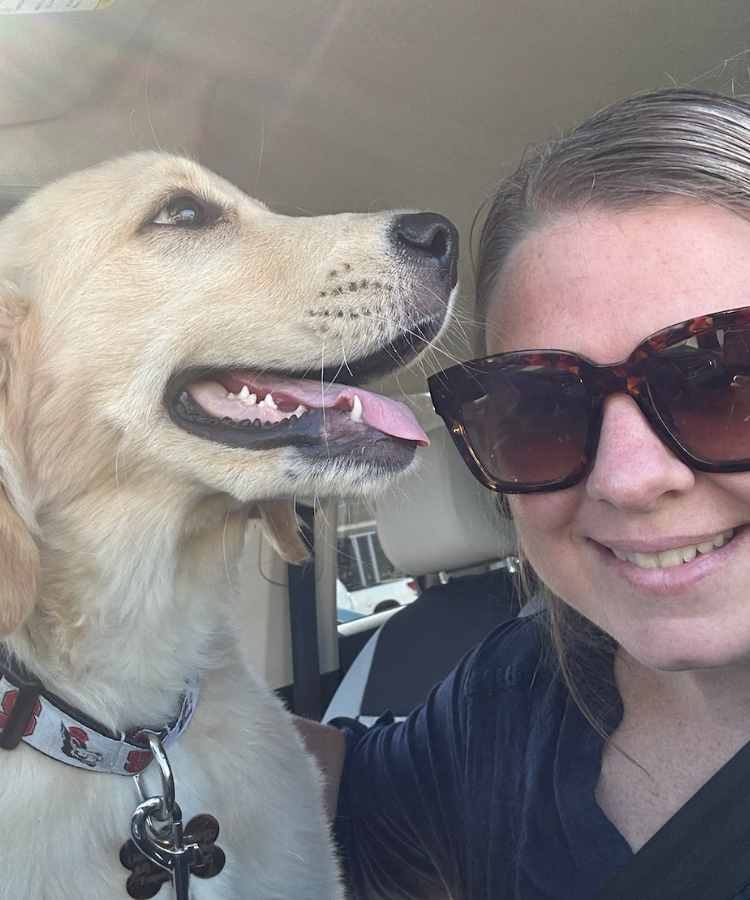You’ve found the cutest puppy you’ve ever seen at Pawrade and have decided you and your family are ready to bring a puppy home. You notice the puppy won’t be ready to leave until a certain date, but you really want that cute 5-week-old puppy delivered to your door right away.
Not so fast! If you’re looking into when puppies should go to their new homes, you’ll encounter all sorts of reasons why puppies should wait until they are at least 8 weeks old or older to leave. Find out why it is important to delay a puppy’s departure until it is developmentally and socially ready to leave its mother and littermates for your loving arms.
Why is the 8-Week Mark an Important Milestone?
It's easy to think of lots of reasons why a puppy should stay with its mother until it is at least 8 weeks old, but there are some benefits you might not have considered. Specific state and international laws, following vaccine schedules from licensed vets, nutritional needs, reinforcing socialization efforts, and exposure to common sounds and experiences are all factors in getting your puppy prepared to come home at 8 weeks old or after.
Laws State to “Wait Till 8”
Putting laws into place defining rules for when puppies can leave their first environment demonstrates that there are excellent reasons to keep a puppy with its mother before 8 weeks old. 22 states and several countries have laws in place stating a puppy must be at least 8 weeks old to leave its mother or be sold. It’s perfectly fine for puppies to go home well after 8 weeks old as well.
Unfortunately, laws also have to be written and enforced because there are people who are only focused on money and do not value puppies’ lives over profits. They breed and sell puppies as quickly as they can without any regard for the well-being of the mother and puppies.
Help fight puppy scams and avoid buying a puppy from a puppy mill by finding your puppy with a trusted breeder who puts the needs of puppies and their dams above all else.
Puppies Need Core Vaccines Before 8 Weeks Old
Breeders and their trusted, licensed veterinarians are experts when it comes to knowing what core vaccines puppies need in their first few weeks of life. If a puppy does not receive the necessary vaccinations at the correct ages, it can be exposed to all sorts of severe and even fatal infections, parasites, and diseases.
Our trusted breeders follow our Pawrade guideline sheet on which core vaccines puppies receive before they leave their homes after at least 8 weeks old. Core vaccines can help protect your puppy against all sorts of severe and even fatal infections, parasites, and diseases.
Vulnerable puppies under 8 weeks old
One of the most devastating illnesses vulnerable puppies can get is canine parvovirus (parvo), a potentially fatal viral infection of the gastrointestinal tract that can spread to other areas of the body. Parvo is spread by direct dog-to-dog contact and contact with contaminated feces, environments, or people. Parvo can even live up to 7 years in the soil!
You must do what you can to protect your puppy as much as possible from forces that threaten your puppy’s well-being. This includes allowing people with more knowledge and expertise to make those decisions about a proper puppy vaccination schedule before 8 weeks old and continuing to fully vaccinate your puppy at around 16 weeks old.
As a responsible puppy owner, you’ll look into how to choose the right veterinarian for you and your puppy’s needs. You can set up regular appointments to receive recommended vaccinations, ask about flea, tick, and heartworm prevention, and learn how often you should come in for boosters and well-puppy visits.
Mother’s Milk is Best for Young Puppies Under 8 Weeks Old
A nursing dam’s milk is always the first choice for the best way to feed a newborn puppy. A dam is able to nurse from birth, providing rich colostrum consisting of antibodies, high proteins, and important immune system elements in those first crucial days. Puppies then nurse every 2-3 hours for about the first week and then move to every 4 hours. Most puppies are fully weaned to solid food between 5 and 7 weeks of age.
Another reason to keep puppies with their mothers is a good breeder will be feeding the nursing mom food high in protein and nutrients that help sustain a growing puppy. A strong, healthy, well-fed mother can have everything she needs to produce rich milk.
The weaning process
During the weaning process, puppies begin consuming semi-solid or wet food at around three weeks of age, and they are on regular puppy food by the time they leave for their new home after 8 weeks old. It just so happens the weaning process is in the same crucial stages of socialization when puppies are motivated to make social contact with strangers and form lasting social bonds with family members, so weaning needs to happen in the correct age space by staying with the litter until 8 weeks.
Removing a puppy’s access to its mother’s milk can compromise its growth and development, robbing them of important nutrients that help form their brains. A dam’s milk will adapt based on her puppies’ growth stage. Researchers have studied how newborn puppies respond to higher levels of DHA in nutrition, which affects the brain and eye development. Puppies who consumed more DHA were found to have less stress-related behavioral issues and were more easily trained in later weeks.
Other puppy nursing benefits before 8 weeks old
Nursing serves another purpose other than solely for nutritional reasons. Nursing is also a comforting, bonding activity with the mother for puppies to experience. Taking a puppy away from its mother too early can also interrupt the bond the mother is creating with her puppies. If removed from its littermates and mother prematurely, a puppy can experience high levels of anxiety and fear, leading to problems in human bonding, aggression, and training issues later on in life.
Puppies Need Socialization Before 8 Weeks Old
When we hear “socialization,” some of us might interpret the meaning to be the process of our puppy making friends and having good manners out in public. However, the need for a puppy to experience socialization before 8 weeks old is much more complicated and robust than being friendly to others.
The science of puppy socialization
According to researchers, the puppy socialization period of development is about 3-12 weeks. During this time, puppies learn how to play with their mothers and littermates, bite inhibition, and interact between humans and other dogs (and possibly other animals). They also develop appropriate responses to fear and curiosity and form a lens for how to interact with the environment around them.
Extensive studies have been conducted in examining the effects of stimulation and early socialization in puppies (or lack thereof). According to one study, puppies exposed to early stimulation were more resilient to stress as adults, experiencing physiological benefits such as improved cardiovascular, adrenal, and immune function, when compared with puppies that were not gently handled during this early period of their lives. In fact, they also found that puppies without exposure to humans prior to 14 weeks old were unable to form normal relationships with humans.
How Breeders Can Prepare Puppies to Go Home After 8 Weeks
Breeders keep a busy schedule preparing their puppies for the real world at 8 weeks old. They love seeing their puppies grow and develop each week with such rapid changes. They know just how to socialize your puppy to be ready to face whatever comes its way.
Exposing puppies to sounds and experiences they will encounter when they reach your loving arms sets the foundation for a well-rounded and well-adjusted puppy that will explore the world with curiosity to the best of the breeder’s ability. It’s important to remember that each puppy will react differently based on its own unique personality and responses.
Some of these environmental experiences for puppies before 8 weeks old include:
- Thunder
- Car rides
- Vacuums
- Doorbells
- Water play
- Blow dryers
- Grooming tools
- Yard equipment
- Play experiences
- Busy street sounds
- Gentle human handling
- Tasting wet and dry foods
- Walking on different textures
- Brief training foundation opportunities
- Interactions with children and other pets or animals
Think of your breeder as your partner in the first 8 weeks of your puppy’s life, and you can pledge to take over from there by also providing enriching opportunities and consistent training. After all, it takes a village to raise a happy, healthy puppy.
Our breeders have made every effort to give their puppies the best start in life. But even with proper socialization, every puppy can respond differently, as each puppy is unique. Sometimes, a puppy can show signs of stress, anxiety, separation issues, and be timid and fearful despite being raised in a loving environment with plenty of enrichment and attention.
When your puppy arrives, he or she adjusts to your environment over a longer period of time and at their own pace, so do not stress if your puppy seems to have regressed some post-delivery. With love, care, and attention at its new furever home, your puppy will come to know its new environment and surroundings and start to grow and develop.
Do Some Puppies Wait Till 12 Weeks or Older to Go Home?
The best age to bring a puppy home is not limited to 8 weeks old. Leaving for a new home, regardless of breed, is perfectly normal well after 8 weeks old. Puppies that are 8-12 weeks old are extremely common ages to leave their mama and littermates. Month 3 is a time when puppies learn good manners, proper boundaries, and begin house training efforts.
Puppies 3-4 months old are also learning valuable socialization skills to be wonderful companions during this developmental period of a puppy’s life. This amazingly fun stage of development will delight owners with puppies’ silly antics and their valiant efforts to be independent while still wanting to snuggle in your arms after a long day of romping around. Puppies this age can learn more complex commands and can continue learning new concepts with plenty of positive reinforcement and praise. It’s an ideal window to introduce them to all sorts of experiences and stimulation in a safe environment – just remember to be up-to-date on vaccinations before engaging in some activities with your puppy).
When do some tiny breeds leave their mamas and littermates?
Certain breeds of puppies may not go home until 12 weeks or 2 lbs., usually because of the puppy’s breed size. Toy breeds in particular tend to go home later, as they are very tiny and fragile. The breeder will devote extra time and effort to give the puppies all they need in the crucial third month of life.
Remaining with the mother gives extra time for the puppies to grow and develop physically, mentally, and socially. Little ones tend to take longer to gain weight. Small dog breeds are also known to have problems regulating their blood sugar. Many breeders with little pups like to keep them longer to make sure they are stable enough.
Here are just a few toy breeds that may remain with their breeders until 12 weeks old or 2 lbs.:
- Maltese puppies
- Papillon puppies
- Shih Tzu puppies
- Chihuahua puppies
- Toy Poodle puppies
- Pomeranian puppies
- Bichon Frise puppies
- Yorkshire Terrier puppies
Find A Healthy Puppy at Pawrade
All Pawrade puppies go home at 8 weeks or older. We have puppies of all ages waiting to find their new furever homes to become beloved family members that will leave for your loving arms when they are ready. Our excellent, pre-screened breeders know just how to get your puppy ready to embrace life by your side. Browse our puppies for sale, and let us know how we can help you find a happy, healthy puppy.
